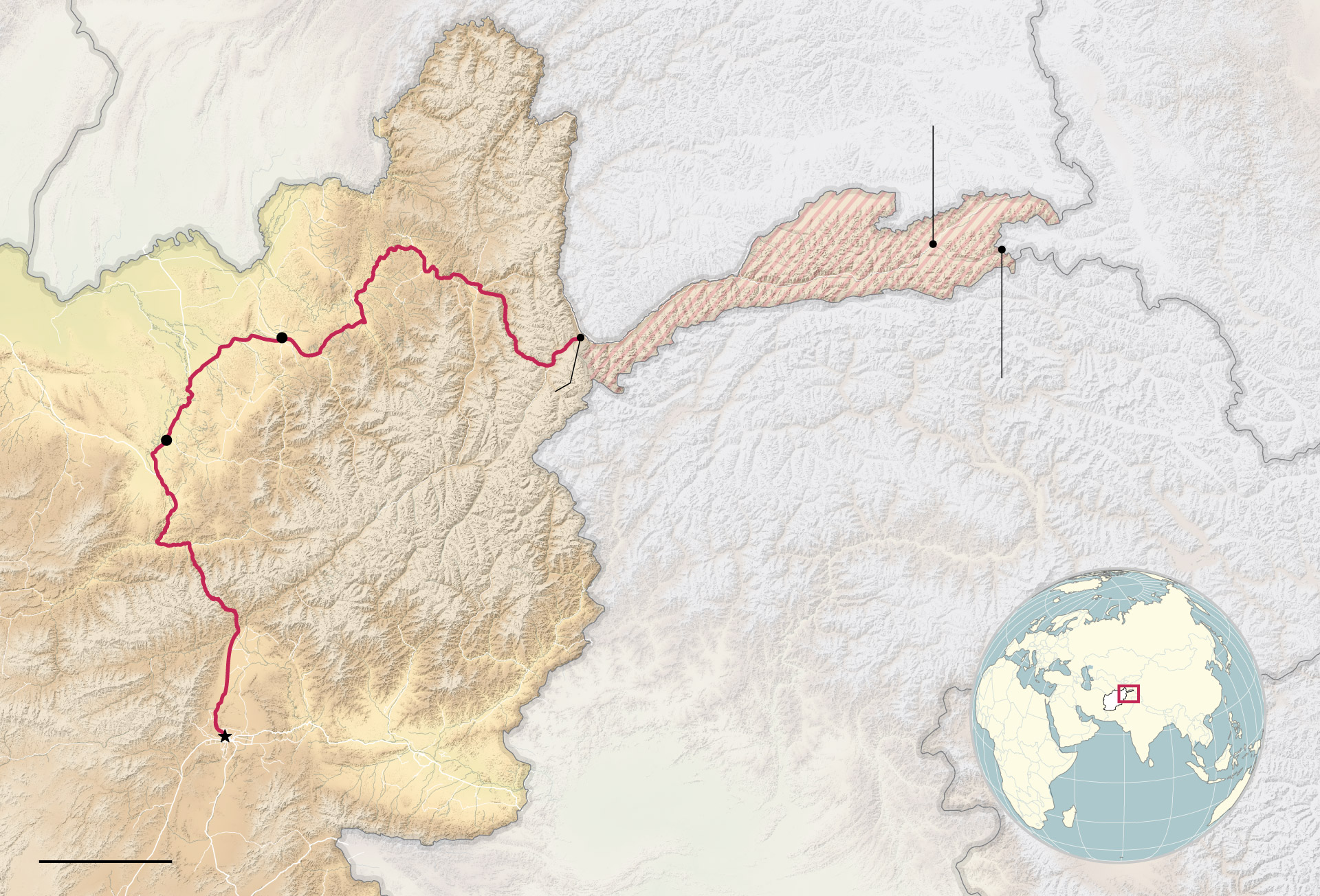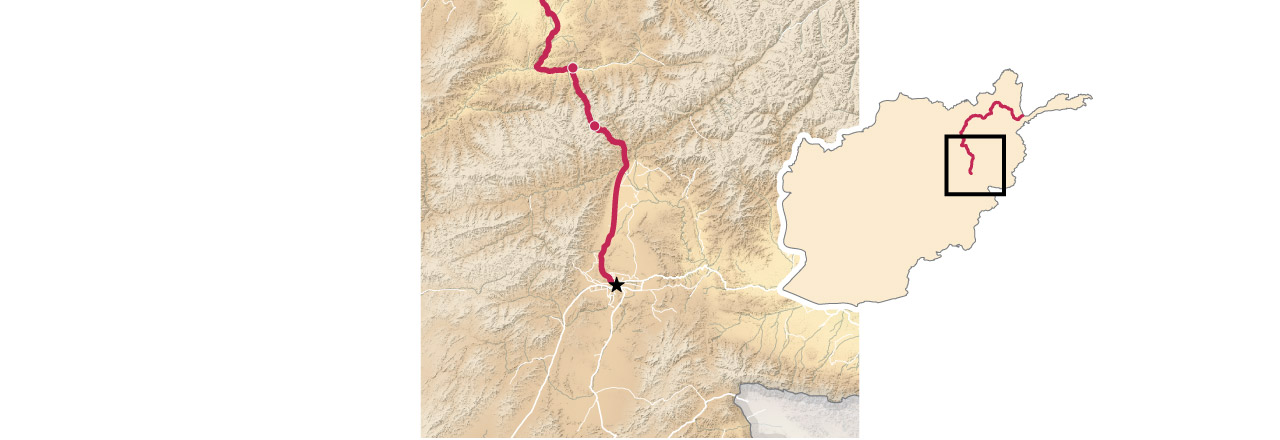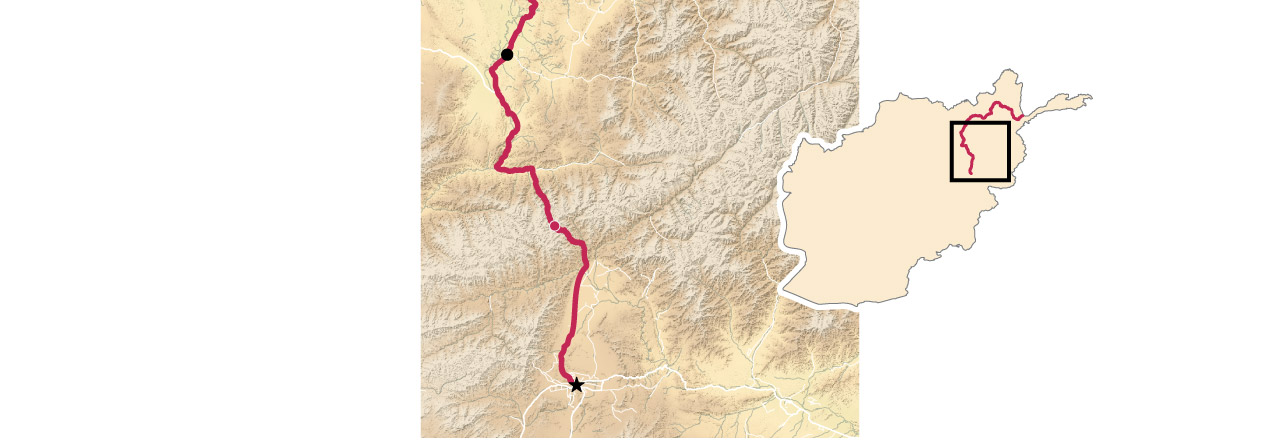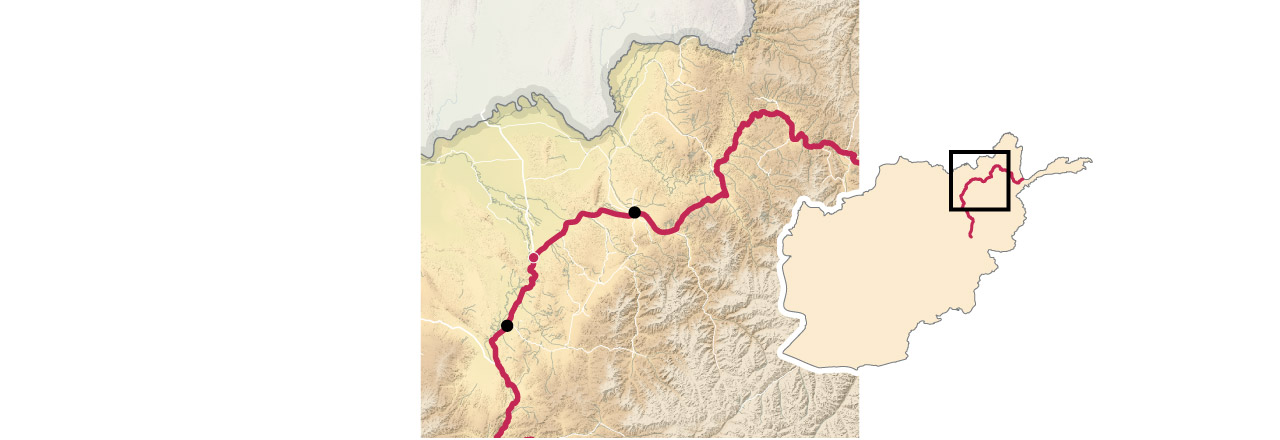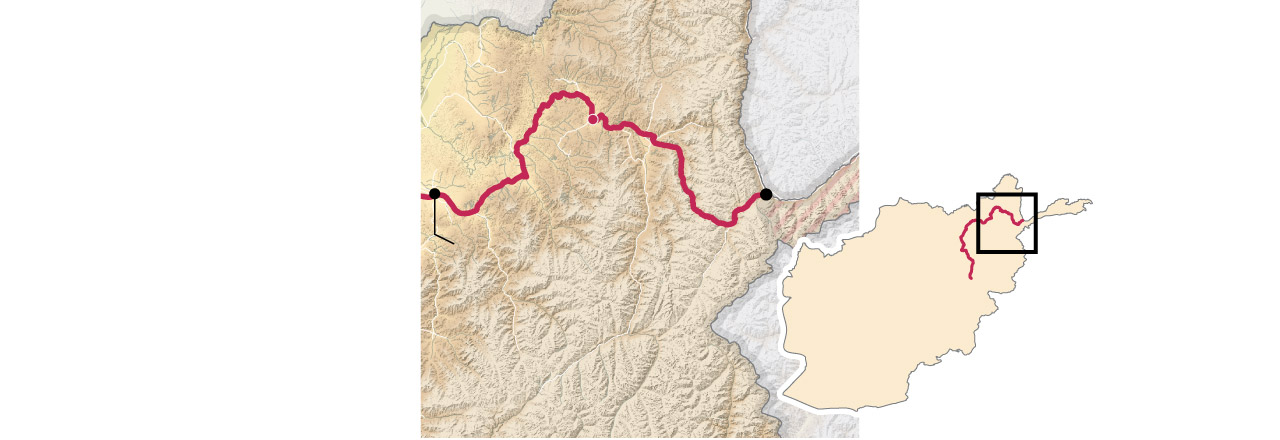Borderless magazine
Hundreds of Afghan migrants face uncertainty after the U.S. abruptly shuts down CBP One, canceling asylum appointments and leaving them in legal limbo.
 Paul Biasco for Borderless Magazine
Paul Biasco for Borderless Magazine
The former Afghanistan journalist, who is seeking asylum, would log onto CBP One every morning, attempting unsuccessfully to secure a coveted appointment with U.S. immigration officials.
Like thousands of immigrants worldwide, Arian, whose last name is being withheld out of fear, relied on the CBP One program to present his asylum case at the U.S. border. The mobile app offered services such as immigration appointments by U.S. Customs and Border Protection.
Arian fled his homeland after the Taliban seized power in August 2021, traveling through Iran, Brazil, and the treacherous Darién Gap, hoping to find refuge in the United States.
But on January 20, 2025, his last hope was shattered.
The Trump administration abruptly shut down CBP One’s scheduling function, canceling all pending appointments and leaving tens of thousands of migrants in limbo.
CBP One’s closure has been devastating to many asylum seekers, said Hollie Webb, Supervising Attorney for Al Otro Lado’s Border Rights Project in Tijuana, Mexico. “They never should have been forced to wait for an appointment or use an app in the first place.”
“The US government under both the [President Joe] Biden and Trump administrations has continued to turn away asylum seekers in violation of domestic and international law,” Webb said.
“We waited so long for a legal way to enter the U.S.,” Arian said. “Now, they’ve shut the door on us, and we don’t know what to do.”
A Sudden Policy Shift
In 2023, the Biden administration expanded services provided through CBP One. The mobile app offered a digital lifeline for asylum seekers, allowing them to schedule appointments at select U.S.-Mexico border crossings. According to the U.S. Customs and Border Protection, only 1,450 slots were available daily for people to make appointments.
While not without flaws, it provided a structured alternative to more than 904,500 individuals who successfully scheduled appointments from January 2023 through November 2024.
Shortly after taking office, Trump eliminated the app’s functionality, framing it as an abuse of the humanitarian parole system. A Department of Homeland Security (DHS) statement justified the move, saying it would “empower law enforcement” and end the “indiscriminate” entry of migrants.
Antonio Gutierrez, Strategic Coordinator with Organized Communities Against Deportations in Chicago, criticized the move to cancel CBP One.“The cancellation of CBP One will only create more fear, confusion, and discrimination,” Gutierrez said. “Instead of finding safety, asylum seekers are being thrown into a system that thrives on chaos and dehumanization.”
For Afghans like Arian, who fled Taliban persecution, this decision is devastating.
“In Afghanistan, we were journalists, we were advocates, we were military and defense forces,” Arian said. “We didn’t choose to leave. We had to.”
Living in Fear and Uncertainty
Now stranded in Mexico, many Afghan refugees fear being subjected to mistreatment, dangerous conditions, and deportation.
Saboor, another Afghan refugee whose name is changed for safety, described an alleged raid by Mexican state police and national guard that left his family terrified and traumatized.
“They stormed our houses Monday night and separated families,” Saboor said. “We had legal documents [from the Mexican Commission for Refugee Assistance (COMAR)], but they didn’t care. They detained us for hours before transferring us to an immigration shelter.”
Mexico’s Secretary of Defense (SEDENA) did not immediately respond to a request for comment.
Last April, several migrants described abuse and robbed by Mexico’s national guard near the U.S. and Mexico border, according to Border Report.
The CBP One cancellation has not only upended months of waiting but has also placed Afghan migrants in extreme financial and psychological distress.
Luis Gomez, director of Psicólogos Sin Fronteras B.C. (Psychologists Without Borders B.C.) in Tijuana, called the policy change “a significant assault on the mental health and well-being of vulnerable individuals and families seeking safety and opportunity.”
“These are not just administrative decisions,” Gomez said. “They have devastating real-life consequences.”
Many, like Yadegari, another Afghan asylum seeker living in Mexico City, spent his life’s savings and the money borrowed to reach the border. Yadegari’s first name is being withheld over safety concerns.
“It took us 40 days to reach Mexico, which wasn’t easy, especially since we had to pass through the Darién Gap with a two-month-old infant,” Yadegari said. He and his family have been in Mexico for over eight months, waiting to make an appointment with the CBP One. “We spent nearly $20,000 just to reach Mexico, thinking that the U.S. could be a new opportunity for us to build our life from scratch.”
Yadegari, who worked for a U.S.-affiliated construction company in Afghanistan, had hoped for protection. Instead, he, along with hundreds of other Afghans, find themselves in a country where they have no legal status, no job opportunities, and very little access to humanitarian aid.
“My family has been suffering here,” he said.
Stranded in Legal Limbo
With CBP One shut down, Afghan asylum seekers now face very limited choices of returning to an uncertain future in Afghanistan, seeking asylum elsewhere, or waiting indefinitely in Mexico. If deported, many women, former government employees, advocates, and those who worked with the U.S. troops fled direct threats from the Taliban and would face imprisonment or death.
“I spent more than a month in Afghanistan after the fall of the government but had to leave due to the number of threats I received,” Arian said. “We walked through Darién Gap with empty stomachs for days, hoping to reach a safer country where we could start from scratch.”
Mexico is home to a small number of Muslims, which is less than 0.01% of the population. The group faces a series of challenges in the country, from language barriers to misconceptions about those who follow a religion with a scant presence in Mexican society.
“They have a very particular situation due to their culture and religion,” Soraya Vazquez of the human rights group Al Otro Lado told Reuters. “There is a lot of stigma against the Muslim community.”
Along with shuttering CBP One, the Trump administration reintroduced the “Remain in Mexico” policy, which forces asylum seekers to wait in Mexico while their cases are processed.
“We call for a more humane and compassionate approach to migration management, one that prioritizes the dignity and human rights of all individuals, including access to mental health support for those affected by these policy changes,” Gomez said.
For Afghans, the option of returning home is non-existent.
William Goodfellow, the director of the Afghanistan Peace Campaign, called for immediate action to help Afghans stranded in Mexico. “By extending the Special Immigrant Visa program, the Trump administration could reward highly-skilled individuals who, in many cases, have risked their lives to advance American interests,” Goodfellow said.
“It would be profoundly unfair to turn our backs on our erstwhile allies, some of whom are still trying to get out of Afghanistan, where their lives are threatened by the Taliban and others who are stranded in third countries,” Goodfellow said.
For now, Afghan asylum seekers remain trapped in limbo. Their dreams of safety have been put on hold, their lives hanging in the balance of shifting U.S. policies.
“We did everything the right way,” Arian said. “We overcame many challenges to get here, only to see the doors shut in our faces.”
Fatema Hosseini is a Roy W. Howard Investigative Reporting fellow covering immigrant communities for Borderless Magazine. Send her an email at fatema@borderlessmag.org.
 Afghanistan Peace Campaign
Afghanistan Peace Campaign
